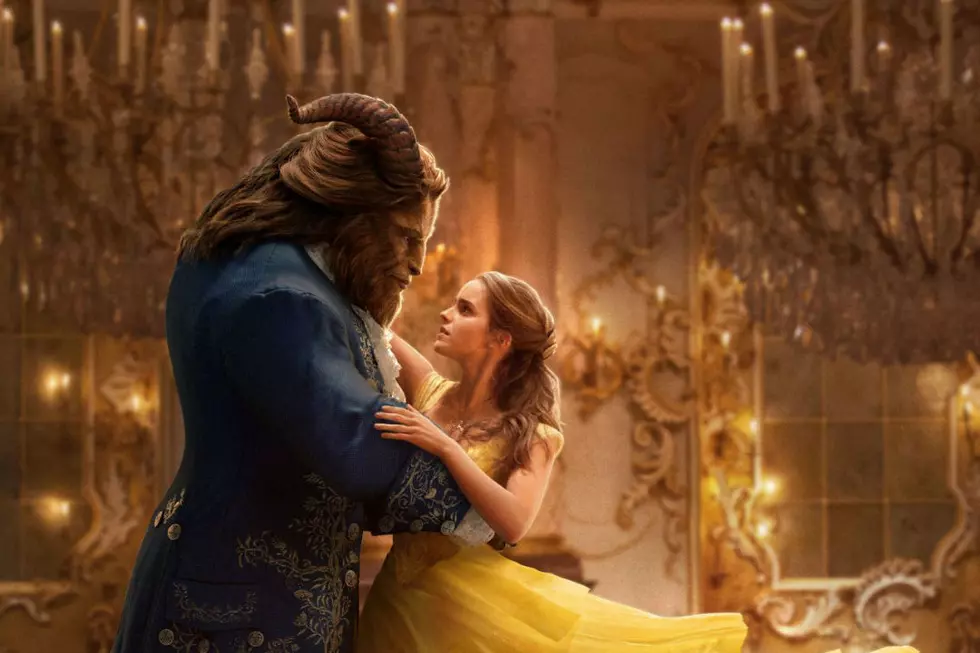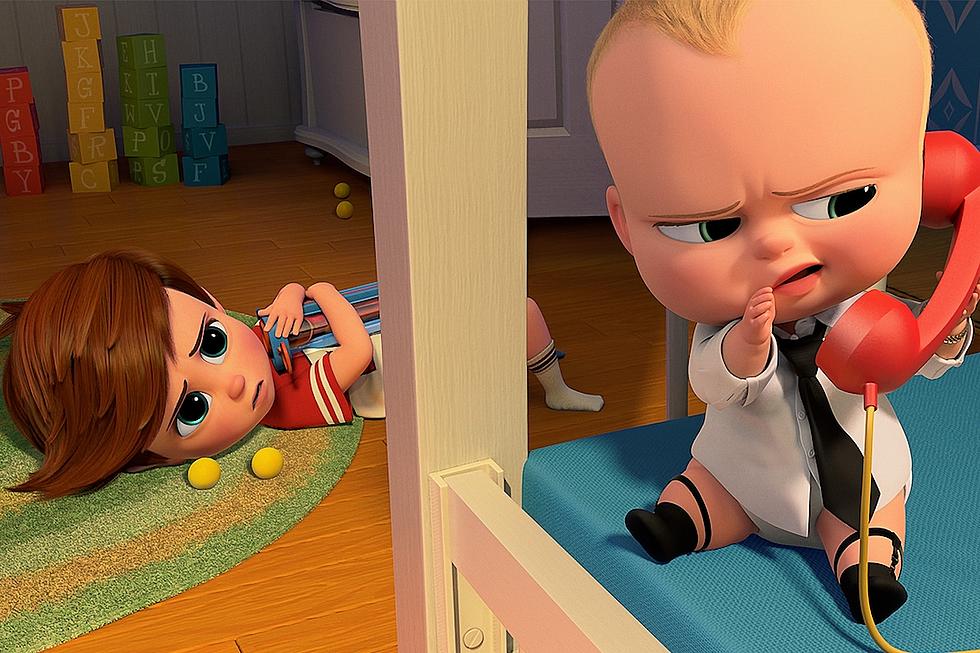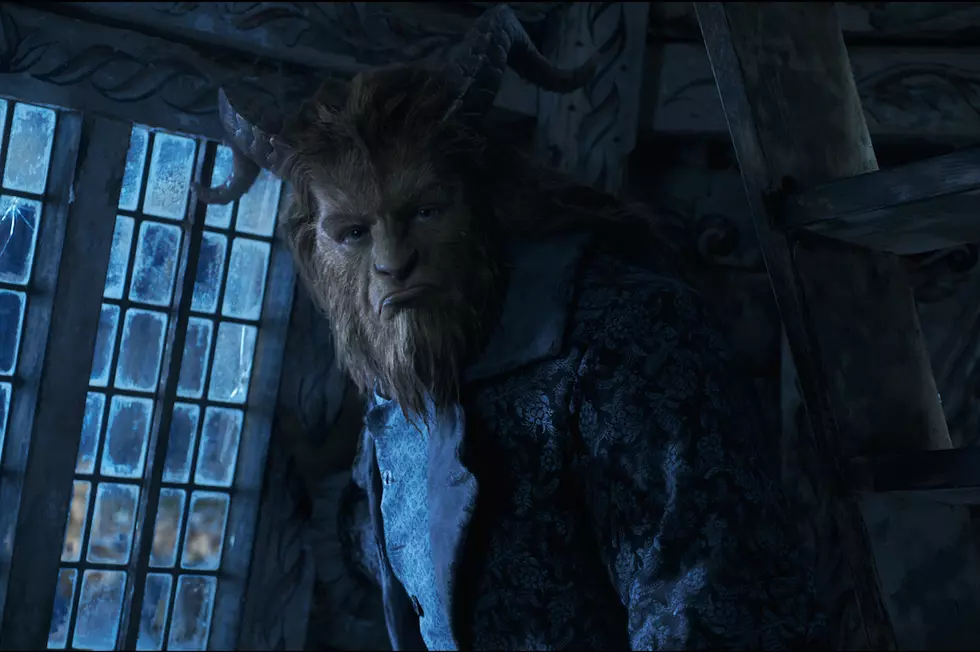
‘Beauty and the Beast’ Review: Even a Tale as Old as Time Can Become New Again
To say that the first trailer for Beauty and the Beast was evocative of the 1991 animated classic would be an understatement; it was a live-action carbon copy, and if Disney’s remake of Cinderella was any indication, we were in for yet another tedious — if visually stunning, well-acted, and beautifully designed — exercise in nostalgia. But Bill Condon’s live-action update of Beauty and the Beast is more reimagining than remake, a lavish and lovely take on a familiar tale (as old as time, no doubt) that enriches its source material without betraying it.
Belle (Emma Watson) is a clever young woman who dreams of life beyond her small (and small-minded) town; she lives at home with her endearing father Maurice (Kevin Kline), and the neighbors all think she’s a total weirdo because she’s literate. Like (exactly like) the original animated film, Maurice unwittingly finds himself at an old, forgotten castle deep in the woods, where a simple misunderstanding makes him the prisoner of the Beast (Dan Stevens), a selfish prince who was — along with his household — cursed by a witch. Belle arrives to take her father’s place, and you know how it goes.
It’s a story that’s been told and re-told time and again, rendering another rehash utterly pointless — unless someone has something new to bring to the table. That someone is Bill Condon, along with screenwriters Evan Spiliotopoulos (The Huntsman: Winter’s War) and Stephen Chbosky (The Perks of Being a Wallflower). The weakest moments in Beauty and the Beast are the ones that explicitly mimic the animated film beat-for-beat. Those moments may have been effective in 1991, in animated form, but here they hold the film back from its more progressive aims. When Condon confirmed this week that Beauty and the Beast has Disney’s first openly gay character, he may have undersold it by referring to Josh Gad’s LeFou as “subtle.” Although there is a bit of complexity in his personal feelings toward Gaston (played to perfection by Luke Evans), LeFou himself is rather flamboyant. But he fits well within the world Condon has imagined — one that opens with a brief look at the prince’s obnoxious and extravagant past, which exists somewhere between Amadeus and Marie Antoinette (and feels like the teaser for a prequel I desperately want to see).
There is more to that past than the powdered wig, G-rated version of Caligula, which is how he eventually builds an emotional connection with Belle. There’s also more to the film’s gayness than Condon let on — aside from LeFou (who figures into what Condon called an “exclusively gay moment” in that same interview), there’s a delightful scene in which a villager experiences an awakening courtesy of his operatic wardrobe. These elements are simple but effective, like taking a cast that was, even in its animated iteration, entirely white, and changing half of them to people of color.
With the exception of the mostly unremarkable (if narratively relevant) new songs and a few tedious moments that lean too much on replicating the animated film for nostalgia’s sake, Condon’s Beauty and the Beast is largely enchanting and pleasant — probably the most pleasant film we’re likely to see until Disney releases that Mary Poppins sequel. Although the CGI-rendered Beast never quite settles into the film’s otherwise gorgeous production design, Beauty more than makes up for it with wonderful performances, captivating chemistry, and song and dance numbers that are (mostly) irresistible. Oh, and if you’re just here for Evans and Gad’s rendition of the “Gaston” song — it exceeds expectations.
Beauty and the Beast is the fifth film in Disney’s ever-growing slate of live-action revisits, which started with Maleficent, but didn’t really kick off until Cinderella. Since then, the studio’s live-action projects have continued to evolve and improve, most notably with Jon Favreau’s visually impressive take on The Jungle Book and David Lowery’s surprisingly poignant remake of Pete’s Dragon (to be fair, just about anything would have improved on that source material).
But Beauty and the Beast is truly different, and it’s no coincidence that its progressive nature come from a director who is himself openly gay. Condon’s authorship in his treatment of the “peculiar” outsider and the ostracized beast whom people fear because he’s different, and an incredibly relevant allegory about cutting through bigotry and hatred with empathy. It’s also an entirely welcome distraction from the contemporary realities it speaks to, providing a charming moment of reprieve without repression.
More From 98.1 KHAK










